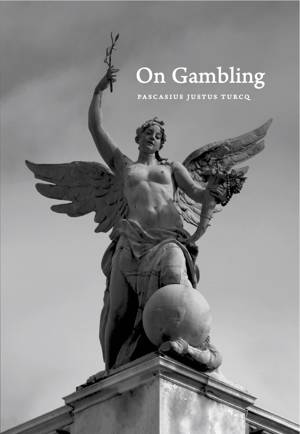
- Afhalen na 1 uur in een winkel met voorraad
- Gratis thuislevering in België vanaf € 30
- Ruim aanbod met 7 miljoen producten
- Afhalen na 1 uur in een winkel met voorraad
- Gratis thuislevering in België vanaf € 30
- Ruim aanbod met 7 miljoen producten
Zoeken
Omschrijving
Pascasius Justus Turcq was born in the Flemish town of Eeklo. As a young man, he travelled through Spain before devoting himself to the study of philosophy and medicine in Italy. On gaining his doctorate, he returned north and settled in Bergen-op-Zoom, where he worked as a physician and eventually became the city's mayor. He attended to William the Silent as one of the physicians who worked to save the Prince's life after the assassination attempt of 1582. Alongside tales of gambling princes and perceptive accounts of the mental suffering experienced by problem gamblers, Pascasius' De alea is remarkable for its singular insights into 16th-century medical science. Basing himself on the authority of the ancient, late-antique and mediaeval traditions, Pascasius first fuses discrete theoretical systems into an innovative framework, allowing him to propose a novel description of compulsive gambling as a psychological disorder. Secondly, Pascasius articulates a series of pioneering cures. He describes this therapy in cognitive terms reminiscent of approaches to non-substance addiction in use today. On Gambling was routinely referenced in scholarship on gambling into the 18th century before disappearing almost entirely from view. Newly available here, with a critical Latin text and English translation, On Gambling epitomises the creative potential of 16th-century medical humanism.
Specificaties
Betrokkenen
- Auteur(s):
- Vertaler(s):
- Uitgeverij:
Inhoud
- Aantal bladzijden:
- 284
- Taal:
- Engels, Latijn
- Reeks:
- Reeksnummer:
- nr. 1
Eigenschappen
- Productcode (EAN):
- 9789464447668
- Verschijningsdatum:
- 15/03/2022
- Uitvoering:
- Hardcover
- Formaat:
- Genaaid
- Afmetingen:
- 164 mm x 232 mm
- Gewicht:
- 589 g

Alleen bij Standaard Boekhandel
+ 159 punten op je klantenkaart van Standaard Boekhandel
Beoordelingen
We publiceren alleen reviews die voldoen aan de voorwaarden voor reviews. Bekijk onze voorwaarden voor reviews.










